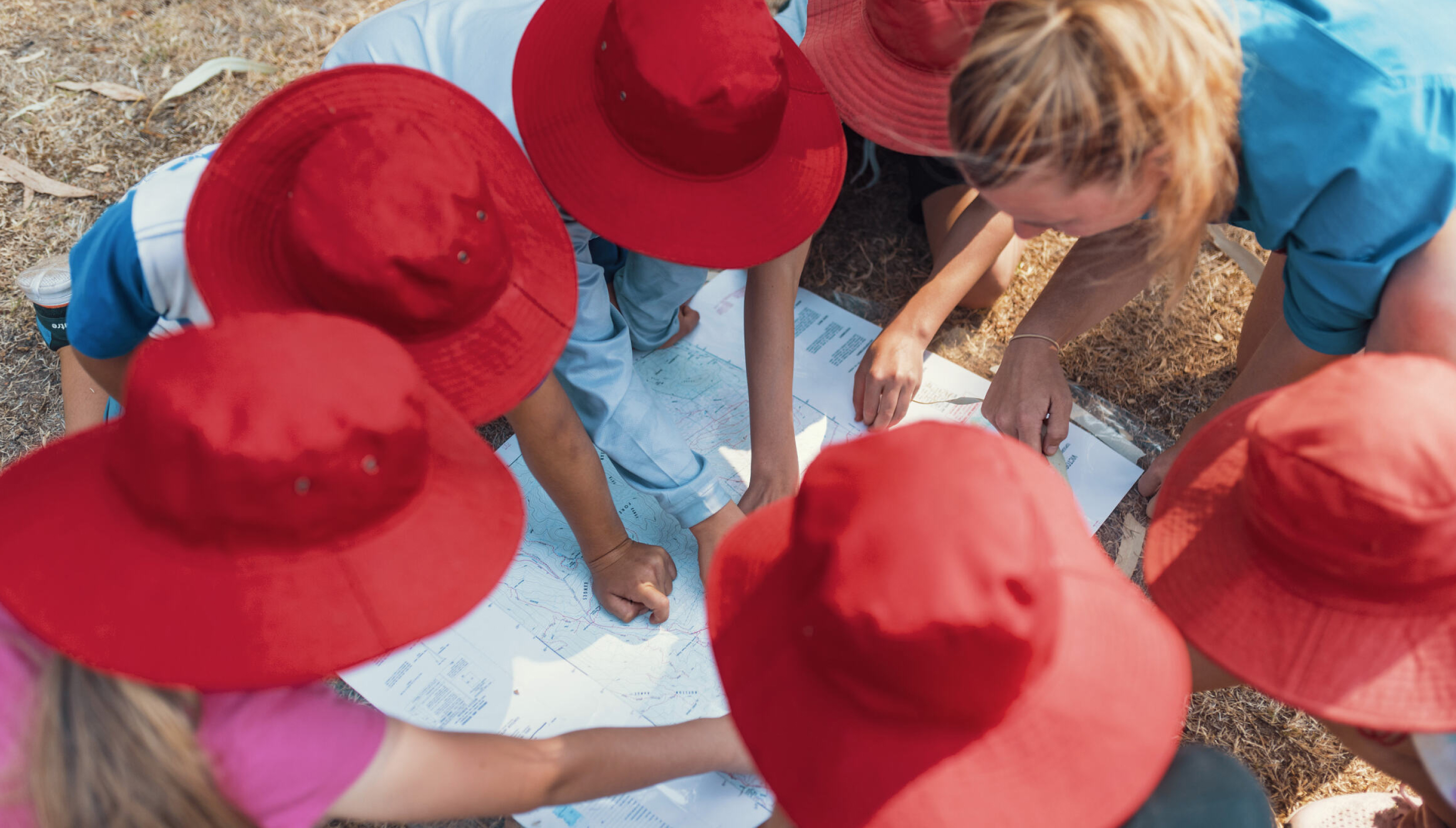We humans are naturally geared towards problem-solving - right from the moment we are born. Many of the problems we overcome in early life are simple ones, but we learn how to become more and more functional from observing both our own needs and the world around us, attempting to solve the problem and then reflecting on how well our approach worked.
When it comes to cultivating problem solving in typical modern-day learning environments, a school setting will often naturally seat students in a passive position with problems that feel unrelated or unexciting to them. While this approach reduces risk, it also minimises the chances of students learning new and creative ways of solving problems and having those ‘aha’ moments that help the lesson stick.
WHAT ARE THE BUILDING BLOCKS OF PROBLEM SOLVING?
Challenge and adventure activities create powerful learning environments which fully engage young people and foster the development of courage, resilience, and responsibility (Larry K. Brendtro and Mark A. Strother, Back to Basics Through Challenge and Adventure [2020]). By definition, we only begin needing problem solving skills when faced with some kind of challenge, difficulty or stress. We also know traits that are generally indicative of a strong problem solver include:
| Resilience |
Objectivity |
| Creativity |
Open mindedness |
| Adaptability |
Courage |
| Innovation |
Versatility |
| Collaboration |
Engagement |
OPPORTUNITIES FOR LEARNING PROBLEM-SOLVING SKILLS IN OUTDOOR EDUCATION
Outdoor education provides a unique alternative for Australian students to undertake learning opportunities in a non-traditional setting, where they can apply themselves in different contexts. In a camp environment, despite programs being in place and the team knowing the terrain, we never quite know what to expect. There may be unexpected weather conditions, varying capabilities and confidence of students, unexpected injuries and even wildlife that can throw a wild card at campers.
Outdoor learning experiences provide immediate feedback, meaning that the pace at which students experience learning is much faster than if they were in a classroom.
For example, let’s say a teacher within a classroom sets an activity with a scenario of rafting in a fast-flowing lake in a small group where the raft capsizes and each student must suggest how they would get all their fellow students back in the raft and to safety.
Many, if not all students probably have never actually been faced with a fast flowing river, or have rafted before. Also - the difference in excitement and engagement between thinking about rafting and actually rafting are extremely different. The other major difference in this experience is that, within the classroom, disengaged students may mentally drift off during the task whereas in a real-life scenario, there is no choice except to address the problem at hand.
In these situations, our team is specifically trained to work with students to facilitate talking through challenges, supporting them in finding solutions and reflecting on actions taken.
When we consider that these problem-solving scenarios occur in unfamiliar environments for students, they often have to dig deep and work together to find solutions.
EXPOSURE TO NATURAL ENVIRONMENTS STIMULATES CRITICAL THINKING REQUIRED FOR PROBLEM-SOLVING
A restorative environment, like the natural scenery of the outdoors, provides a sense of escape from the usual, recovery from attention fatigue, and the potential to generate ideas through free-thinking. Studies highlight that a natural setting stimulates ideas and influences creative ability.
Simply being faced with a problem to overcome in the outdoors means that a student is armed with the calming benefit of being in a natural setting, an enhanced sense of creativity and an endless source of inspiration for potential solutions.
(Within this study) Creative performance is particularly highly correlated with flexibility, showing that natural environments away from the familiar allow us to be psychologically free and comfortable, thereby stimulating flexibility and generating diverse ideas (The influence of natural environments on creativity, 2022)
THE IMPORTANCE OF LEARNING PROBLEM-SOLVING SKILLS
Teaching problem solving skills via authentic scenarios in the early years is essential to ensure students can approach complex issues in life and at work with confidence and overcome problems with some degree of independence.
To focus on the professional, every job role within any business will present unexpected challenges. Each individual’s proven ability to confidently solve problems will be a display of competence and reliability to peers, managers and key stakeholders and pave the way for them to become capable leaders.
As many as 93% of employers expect a demonstrated capacity to solve complex problems. However in a study conducted on adult language, literacy, numeracy and problem-solving skills in the workplace by the University of Technology in Sydney, results indicated that some 38–64% of employed Australians were below minimal competence in problem-solving skills.
EXPLORING OUTDOOR EDUCATION OPPORTUNITIES AND EMBRACING EXPERIENTIAL LEARNING
The benefit of cultivating problem-solving skills in students via Experiential Education in an outdoor setting is that, rather than pushing students to develop critical thinking skills in irrelevant contexts, the educator literally places the student into the environment in which the skills can be used to solve imminent problems.
There is something much more engaging and fulfilling within the latter experience which, upon facilitated reflection, can be quickly applied to challenges in everyday life.
When a student is exposed to sequenced outdoor education throughout the early stages of their life, the opportunity arises to give more ownership back to students and increase the complexity of problems as they grow. Whether this occurs within a group or independent scenario, it helps provide the building blocks to support what is being learned in the classroom and apply it in the world. This is how well-rounded leaders are created.
